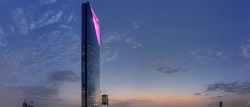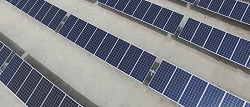
ECONOMY
Prudent spending and a thriving non-oil private sector are stimulating economic growth in the kingdom, despite ongoing market challenges.
Find out more

Have questions about SAB banking services? Let us help you with these frequently asked questions.
FAQSOur friendly Customer Support team are on hand to help with any queries you have. We're here to help!
Contact UsQuick Links


Prudent spending and a thriving non-oil private sector are stimulating economic growth in the kingdom, despite ongoing market challenges.
Find out more
The country is on track to meet its energy mix target of sourcing 50% of its power from renewables, while also making significant progress on its ESG strategy.
Find out more
Labour force participation rate in the private sector continues to move upwards, with Saudi women, in particular, showing steady growth.
Find out more
Recent developments have boosted confidence in the stock exchange and turned it into one of the largest worldwide in terms of market capitalisation.
Find out more
The tourism sector achieved its 2030 goal seven years in advance, bringing plenty of opportunities to help support the kingdom’s economic diversification effort.
Find out more
IN THIS EDITION
Saudi Arabia and the United States are building on their strong trade and investment ties with fresh flows as both undergo a rapid economic transformation.
Total trade between the two countries reached USD 29.7 billion (SAR 112 billion), according to a report from the US-Saudi Business Council.
Saudi exports to the US reached USD 16 billion in 2023, with crude oil accounting for USD 13.7 billion. The kingdom continues to be a major oil supplier to the US, while non-oil exports reached USD 2.3 billion, led by fertilisers at USD 790 million, making up 35% of the non-oil total and marking a 2% year-on-year increase. Organic chemicals followed at USD 706 million, representing 31% of non-oil exports. Notably, exports of inorganic chemicals, precious metals, and radioactive compounds surged by a remarkable 7,686% to USD 12 million.
US exports to Saudi Arabia also saw a significant growth of 20% in 2023 versus the previous year to USD 13.8 billion. Key exports included electrical and mechanical equipment, industrial goods, agricultural products, and pharmaceuticals. The automotive sector remained the top American export, totalling USD 2.8 billion, up 32% year on year. Machinery, including nuclear reactors, boilers, and related parts, was the second-largest category, contributing USD 2.5 billion, a 38% increase. Aircraft and parts made up the third-largest exports valued at USD 1.7 billion.
Texas continued to lead among US states in trade with Saudi Arabia, exporting USD 2.9 billion worth of goods, followed by California with USD 886 million in exports, a 12% increase year on year. North Carolina ranked third, with exports rising 17% to USD 846 million.
Expanding trade and foreign direct investment (FDI) would be crucial to Saudi Arabia’s strategy of diversifying its economy beyond oil.
American dominance in artificial intelligence, digital services and clean technology, and Saudi Arabia’s natural resources and diversification of non-oil industry presents a range of opportunities for corporations in both countries, leading to expansion of trade.
You are about to leave this site. You are being redirected to an external site. Would you like to leave this site?
© SAB, Saudi Arabia. All Rights Reserved, 2025
Saudi Awwal Bank, a listed joint stock company, incorporated in the Kingdom of Saudi Arabia, with paid in capital of SAR 20,547,945,220, commercial registration certificate 1010025779, unified number 7000018668, Mailing Address: P.O. Box 9084, Riyadh 11413. National Address: 7383 King Fahad Branch Rd, 2338 Al Yasmeen Dist., 13325 Riyadh, Kingdom of Saudi Arabia, Tel. +966 11 4050677, www.sab.com, licensed pursuant to the Council of Ministers Resolution No. 198 dated 06/02/1398H and Royal Decree No. M/4 dated 12/08/1398H, and regulated and supervised by the Saudi Central Bank.